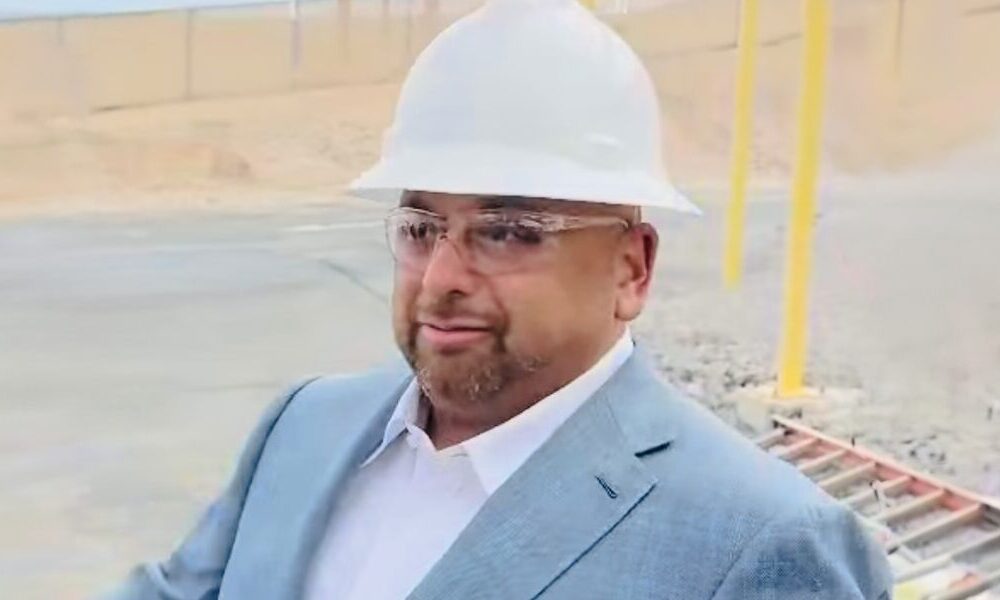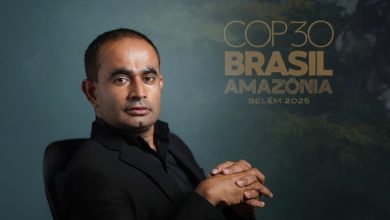From Concrete To Carbon: Suneet Singal’s Role In America’s Green Energy Revolution

In the not-so-distant past, Suneet Singal was known as a standout figure in the world of real estate, an industry where ambition towers as high as the buildings he helped finance. Nowadays, he can be found discussing clean energy strategies with entrepreneurs or collaborating with engineers on biomass infrastructure. His pivot from concrete to carbon strategy represents a striking evolution, but for Singal, it’s simply the logical next step in a career driven by value creation. Only now, the value he seeks isn’t just financial, it’s environmental, commercial, and generational.
As nations around the world scramble to meet emissions targets, balance energy security, and maintain economic competitiveness, he has positioned himself as a key advisor and voice of reason in a sector too often caught between idealism and inertia. Singal is not interested in greenwashing or ungrounded optimism. He’s interested in solutions, especially the ones that generate both profit and progress.
Given his real estate background, where asset management, risk, and return are deeply intertwined, Singal brings a fiscally conservative lens to climate innovation. “It’s not a zero-sum game between economic strength and environmental stewardship. With the right strategies and incentives, the two can reinforce each other. We can meet domestic needs and create products that serve global markets. It’s not about abandoning values, it’s about elevating them. Competition, innovation, and independence should be the cornerstones of leadership in this space,” he explains.
That philosophy is taking shape across several verticals. In the Southern U.S., for instance, Singal is involved in projects leveraging the region’s abundant biomass and cutting-edge carbon capture and sequestration (CCS) infrastructure. According to industry reports, the U.S. Gulf Coast is on track to become a CCS leader, with more than 80 million metric tons of annual capacity in development. These hubs don’t just store emissions — they enable large-scale industrial decarbonization and could unlock export-ready carbon solutions in a rapidly evolving energy marketplace.
But Singal’s model of leadership doesn’t stop at state lines. He champions commercial partnerships that allow U.S.-based technologies to meet sustainability needs across international markets. These aren’t philanthropic ventures; they’re built around shared commercial interests. The idea is simple: if advanced biofuels or clean hydrogen can be produced at scale using American expertise, they can serve global demand while driving value at home.
He’s particularly focused on market pathways that allow companies to deploy U.S. feedstocks and processing technology through strategically located facilities, whether domestically or abroad. These kinds of efforts reduce supply chain volatility and allow private firms to meet growing international sustainability standards on competitive terms.
Clean hydrogen, for instance, is rapidly gaining momentum in the energy sector. In the U.S., initiatives like the Hydrogen Shot aim to dramatically reduce production costs and expand availability. Singal sees a direct role for private innovators in scaling these technologies — not just in producing them, but in aligning infrastructure, investment, and supply chain capacity for long-term impact.
Singal’s role in these ecosystems is not that of a public official or lobbyist, but of a translator, someone who can bridge policy, capital, and industrial know-how. He speaks the language of markets as fluently as that of environmental science. His background allows him to see beyond short-term incentives and understand how lasting infrastructure must be structured to drive results and attract capital.
That’s why he’s cautious about overly relying on subsidies or temporary tax relief. “If your business model only works because of handouts, it’s not a business, it’s a liability,” he says. “We need to build systems that are cost-competitive and resilient to external factors. That’s what buyers want, and it’s what responsible entrepreneurship demands.”
True to his private-sector roots, Singal is a staunch advocate for U.S.-based production. But he also believes American products must be globally relevant. “Serving international markets from a domestic base isn’t just smart, it’s strategic. When we export real solutions, we shape global trends, create jobs, and keep capital circulating inside our economy.”
This pragmatic approach is resonating with business leaders across multiple sectors, especially those looking to align growth with sustainability without losing sight of cost discipline. Singal often consults with executives exploring how to make sustainability work for their bottom lines. His message is consistent: decarbonization doesn’t have to mean deindustrialization. With smart policy frameworks and entrepreneurial leadership, the U.S. can lead the next generation of energy and infrastructure technologies.
This thinking is particularly relevant in the growing sustainable aviation fuel (SAF) sector, a space Singal is deeply involved in. As airlines face increasing pressure to reduce emissions, the challenge lies in building a cost-effective, scalable supply of sustainable fuel. Singal’s work is focused on unlocking that potential by leveraging U.S. feedstocks such as agricultural residues and woody biomass, and refining them either domestically or through select global processing hubs. The result is a more reliable, politically stable supply chain that meets international standards without compromising competitiveness.
At the core of Singal’s philosophy is a belief in alignment between market opportunity and sustainability, between growth and responsibility. He rejects the notion that environmentally conscious business must come at the expense of fiscal discipline or national strength. He is also attentive to how critical energy assets are structured, with a preference for domestic control and transparent investment models.
“We should be exporting our capabilities and leadership, not our control. Climate progress isn’t about compliance, it’s about direction. If we want to shape the future, we need to lead it on our terms,” he says.
Singal’s influence continues to grow as businesses seek practical roadmaps for navigating the green transition. His ability to bring clarity to complex systems and connect industrial ambition with environmental responsibility makes him a valuable advisor to executives and stakeholders looking for more than slogans. His model is based on mutual value: the private sector drives innovation, markets reward impact, and industries transition without losing their edge.
There’s something deeply American about Singal’s story. His career trajectory perfectly encompasses both the American Dream and a thirst for making the world a better place. His work doesn’t make headlines every day, but it’s shaping how governments and businesses alike think about the green transition, not as a burden, but as an opportunity for U.S. strength and global cooperation.
“The next decade will determine who leads the global economy, and it won’t just be about output, but about purpose. America has the tools: capital, technology, and talent. If we lead with intention, the results will follow. This is a moment not just for innovation, but for leadership that lasts.” He concluded.

Source: From Concrete To Carbon: Suneet Singal’s Role In America’s Green Energy Revolution




